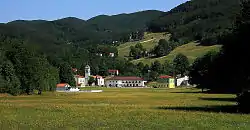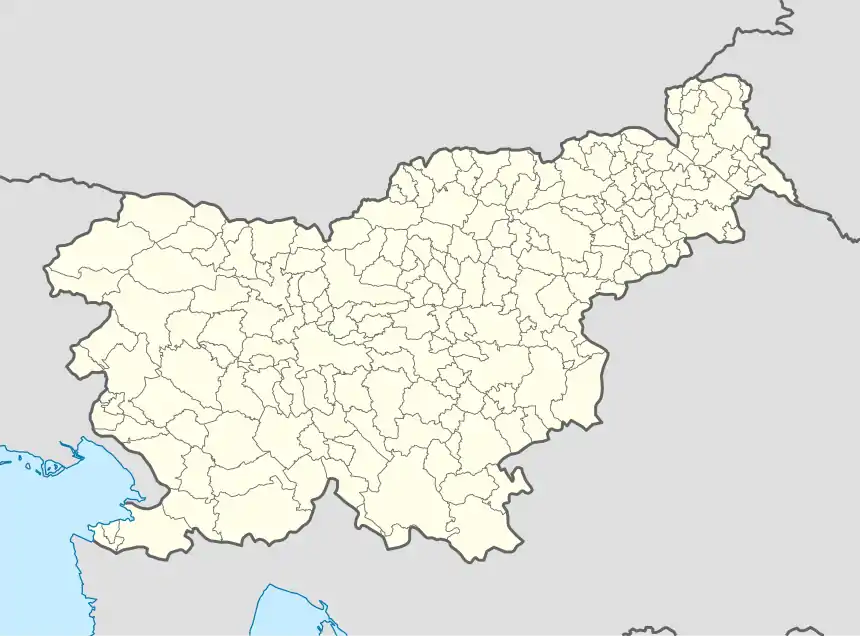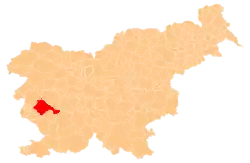Otlica
Otlica (pronounced [ˈoːtlitsa]) is a dispersed settlement in the hills north of Ajdovščina in the Littoral region of Slovenia. It is made up of smaller clusters of the hamlets of Sibirija, Kitajska, Kurja Vas (Slovene: Kurja vas), and Cerkovna, as well as a number of outlying isolated farms.[2] Together with the ridge-top villages of Predmeja, Kovk, and Gozd, it is part of an area locally known as Gora (literally, 'the mountain').[3]
Otlica | |
|---|---|
 | |
 Otlica Location in Slovenia | |
| Coordinates: 45°55′39.37″N 13°54′36.7″E | |
| Country | |
| Traditional region | Littoral |
| Statistical region | Gorizia |
| Municipality | Ajdovščina |
| Area | |
| • Total | 12.17 km2 (4.70 sq mi) |
| Elevation | 817.8 m (2,683.1 ft) |
| Population (2002) | |
| • Total | 319 |
| [1] | |
Names
The name Otlica is derived from the Slovene adjective otel 'hollow'. It refers to a karst sinkhole about 500 meters (1,600 ft) west of Navrše Hill (elevation 500 meters, 1,600 ft); the bottom of the sinkhole leads to the opposite side of the Gora Ridge through a passage 20 meters (66 ft) high and 15 meters (49 ft) wide that opens above a footpath to Ajdovščina. In folk tradition the mountain was therefore referred to as being hollow.[4][5] The hamlet of Siberija (literally, 'Siberia') is so named because of its exposure to the frost and the bora wind, and the hamlet of Kitajska (literally, 'China') is a reference to the large number of children that people living there had.[6]
Church
The parish church in the settlement is dedicated to the Guardian Angels and belongs to the Koper Diocese.[7]
References
- Statistical Office of the Republic of Slovenia
- Ajdovščina municipal site
- Ajdovščina Tourism Information Center. Naša dežela: Gora.
- Savnik, Roman (1968). Krajevni leksikon Slovenije, vol. 1. Ljubljana: Državna založba Slovenije. pp. 25–26.
- Bezlaj, France. 1982. Etimološki slovar slovenskega jezika, vol. 2. Ljubljana: Slovenska akademija znanosti in umetnosti, p. 261.
- Okno Tourist Board. Pot po Angelski gori.
- Koper Diocese list of churches Archived 2009-03-06 at the Wayback Machine

